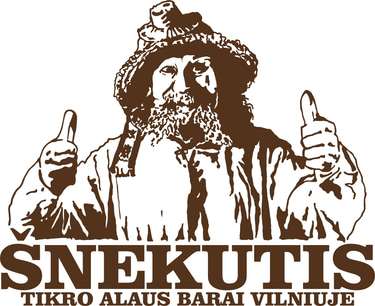Pasvalys legend in Vilnius - Valentas Vaškevičius and "Šnekutis"
The founder of the authentic beer bar Šnekutis, Valentas Vaškevičius from Pasvalys, is already known to everyone in Vilnius who respects the heritage of brewing. And the secret is a human simplicity, without which there will be no good beer...
Author Kotryna Kraptavičiūtė - Pasvalys district newspaper "Darbas" - December 3, 2024 The text of the interview is published with the author's permission.
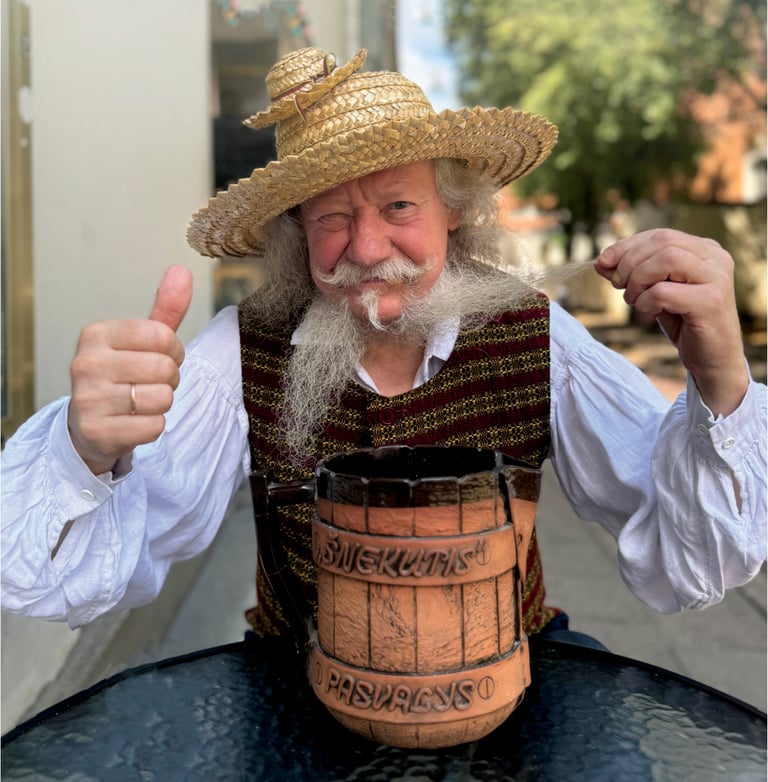

Everyone knows that Pasvalys and beer go hand in hand. That's what today's conversation is all about - it's cosy and smells of hops... Perhaps the first rural beer bar in Vilnius, Šnekutis, opened its doors in 2006, in Užupis. A year later, a second one was opened on Šv. Steponas street. And today, the only one left on Šv. Mikalojaus street will celebrate its eleventh birthday during Kaziukas. In the latter, you can meet its founder, Valentas Vaškevičius from Pasvalys, and he is there almost every day. It was this countryman with his cheerfully curled moustache who started, one could say, another epoch of the capital's beer culture. Sitting at the wooden table of Šnekutis, enjoying the zeppelins (cepelinai) prepared by Daina Vaškevičienė, we talked about the "yin" and the "yang" - beer and Pasvalys.
More than beer
The founder of "Šnekutis", Valentas Vaškevičius, was born in Vainekonys. His mother used to brew beer in their native home.
"There were good Estonian extracts at that time - my mother used them for the brewing. I was too young, I don't remember the taste anymore... But every other courtyard used to make the beer too, and the neighbours gave it each other to taste. In exchange, there was always beer, bacon, sausages and bread. Like currency (smiles). Tractor drivers or chauffeurs would ask - do you have beer? If you don't have beer, they won't even go to work," Valentas recalls, smiling. Beer then meant more than just a drink. It was about hospitality, the taste of home and the word we love so much today - community.
And today people come to Šnekutis for more than just a drink. Beer is an opportunity to get together and talk. Few people do it alone. The founder is pleased that people are once again able to drink in a cultural and moderate way, just as they did in the days of our ancestors.
Stories, people and simplicity
When talking about the secrets of brewing and tasting beer, Valentas remembers one rule in particular. Beer should be brewed in peace - no noise, no banging firewood (it was also not recommended to build a fire with waste materials, boards, etc.) - so that after drinking it, a person would be calm and not want to fight. "But there is some truth in that! - says the founder of Šnekutis. "In the old days, Pasvalys used to have a lot of "illegal breweries". And we used to get beer from one of them. But when we drank it, we got into the biggest fights. We became convinced that something was really wrong. There is some truth in it."
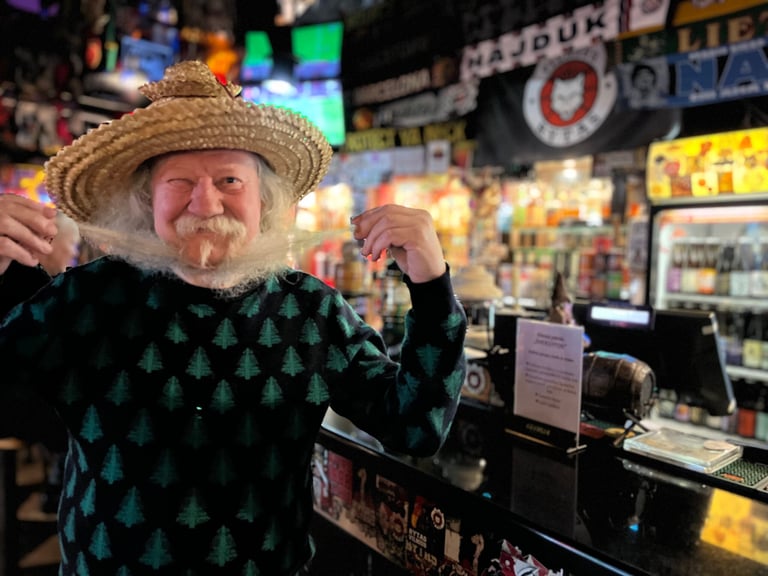

When the Vaškevičius family came to the capital in 2006, there were more differences between the region's and the city's beer culture than there are now. For example:
"When we opened the first bar in Vilnius, I was surprised. In Pasvalys, in those days, if you saw a woman in a bar, there was something wrong about it. The women were drunk or with a beaten eye. But here in Vilnius, among visitors there were normal women, and without bruises," Valentas laughs.
People are attracted to Šnekutis not only for tasting quality beer, but also for listening to brewing and other life stories. "We talk to visitors. I show up as much as I can," smiles Valentas. He recalls one time when some foreigners came and asked to take a picture. It turns out that they had come ten years ago and had come back again - they still had the first photo in their phone.
And I'm not surprised at all... Talking to Valentas is like tasting real, live, home-brewed beer. You get relaxed. You remember home. When I asked him what he thinks attracts people to Šnekutis, something sparkled in his eyes:
"Simplicity...", - smiled Valentas modestly, gently.
Commitment to tradition
Valentas' wife Daina is from Meškalaukis. Their children Aurimas and Gintarė grew up in Pasvalys, Joniškėlio street.
The kitchen at Šnekutis belongs to Daina. "The food at home was always delicious. She's self-taught when it comes to food, but she has good receptors", says Valentas. Two other women are helping her, both of them work in Šnekutis from the very first beginning in Užupis, back in 2006. They are now joined by an Ukrainian woman. Cleaning is handled by a father and son, also Ukrainian. Like the cooks, the bartenders have been loyal to Šnekutis for many years, since the opening of the restaurant at Šv. Mikalojaus street when they were in their early twenties.
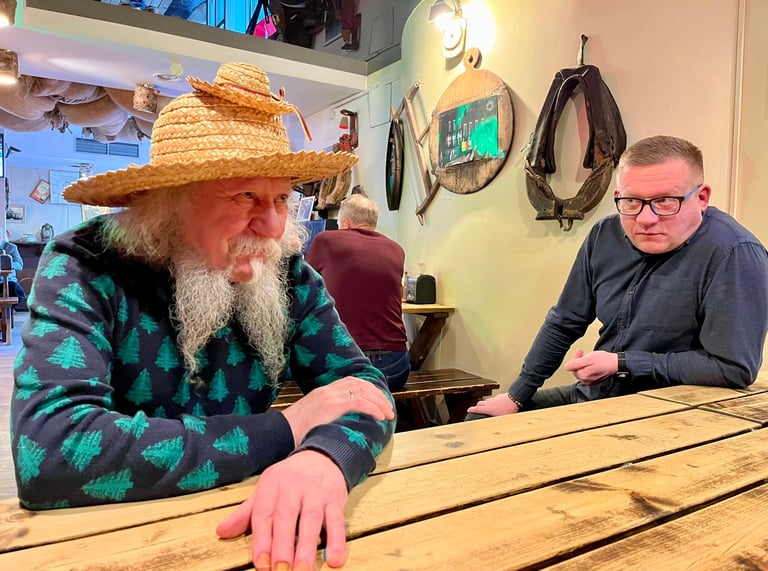

In Užupis, where Valentas' first pub was located, another house is now popping up after the competition. For the second bar at Šv. Stepono street the owner decided to reclaim the property. So there is only one Šnekutis left in Vilnius. But even though the first two were closed down, their customers haven't abandoned the pub - they gather at Šv. Mikalojaus street. For many the bartenders already know what to pour - you don't even have to ask.
Loyalty to tradition is the honour of Šnekutis. Grated potato cepelinai, potato pancakes, vėdarai, karka, kugelis with pork ears and other Lithuanian dishes come from the family's kitchen treasure trove. It's how Daina's parents cooked, and it's how both her and Valentas' family cook. Just as they started treating visitors almost twenty years ago, so they do today:
"- It must be maintained. Otherwise, there will be no more Šnekutis," Valentas believes.
Šnekutis is a real family business. Today his son Aurimas is in charge of bookkeeping. But, of course, he also had to stand behind the bar in the very beginning. And he can talk for hours about the different types of beer and their production.
Daughter Gintarė worked with her dad for a while at the second bar on Šv. Stepono street. Later she emigrated to the Netherlands, where she started a family with her husband, who is also from Pasvalys. But she has been always interested in the life of Šnekutis and this copy of "Darbas" newspaper will also go to the Netherlands.
About dreams
People from Pasvalys, although few in number, sometimes also visit the bar. Valentas is thinking - maybe we should organise a monthly gathering of Pasvalys expatriates in Šnekutis?
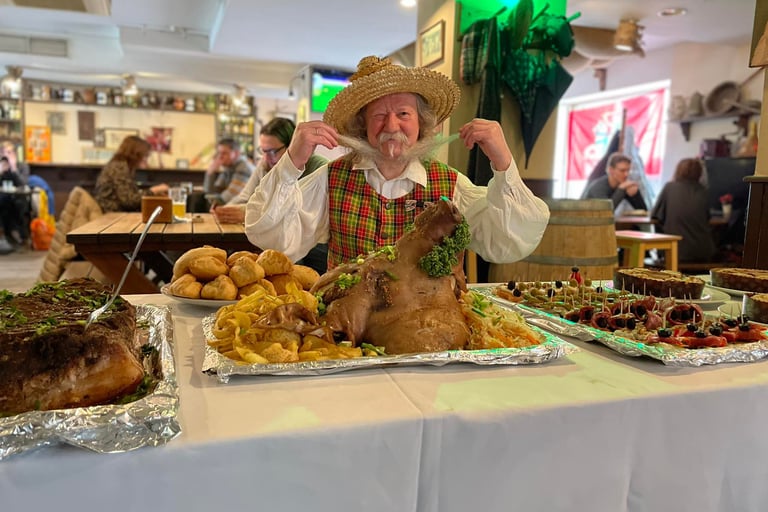

We talked about the fact that there is still no real typical Pasvalys beer bar in Pasvalys itself - the home of beer:
"There are not enough beer drinkers. Empty. There aren't enough tourists. It's hard to attract people to Pasvalys. Pakruojis has a manor house, Biržai has a castle," says Valentas. "On the other hand, traditional beer could be an attraction for the place... It's a pity that Pasvalys has so far been disadvantaged in this respect compared to other towns in the North."
But maybe it's just a matter of time? In 2027, Pasvalys will become the Lithuanian Capital of Culture. On this occasion Valentas will also present the culture of Pasvalys region. Maybe someone will have the idea to embody it too...
The success story of Šnekutis
Today people mostly like pale, lager-style beers, bitter IPAs and the taste of the Biržai region. Thirty varieties of the authentic beer flow from the taps at Šnekutis! The most similar to the first home-brewed beer of Šnekutis is Kaimiškas Jovarų alus from the Pakruojis region.
"I didn't do it myself, I was a spectator. When we opened the company, my wife's brother was the main brewer", he says. He had a good recipe, used local materials and brewed his own yeast, regenerating it from used yeast on his own farm. And today's popular IPAs were not available at that time. It was the brewer Morkūnas (RIP) who brought a similar beer - maybe a bit more bitter - to the people of Vilnius for the first time."
It's a pity, but Valentas no longer brews his own beer in Pasvalys after his business failed twenty years ago:
"We have had enough of it. I was in politics and business. I have been involved in thirty small companies. I left politics and my beer licence was taken away. At the end I still had three small pubs in Pasvalys. You had to document everything in the real notebook, and they even didn't give you your money back. And I had to leave. We looked for a place to start from the beginning, and we found a small pub in Užupis. The rents were reasonable then."
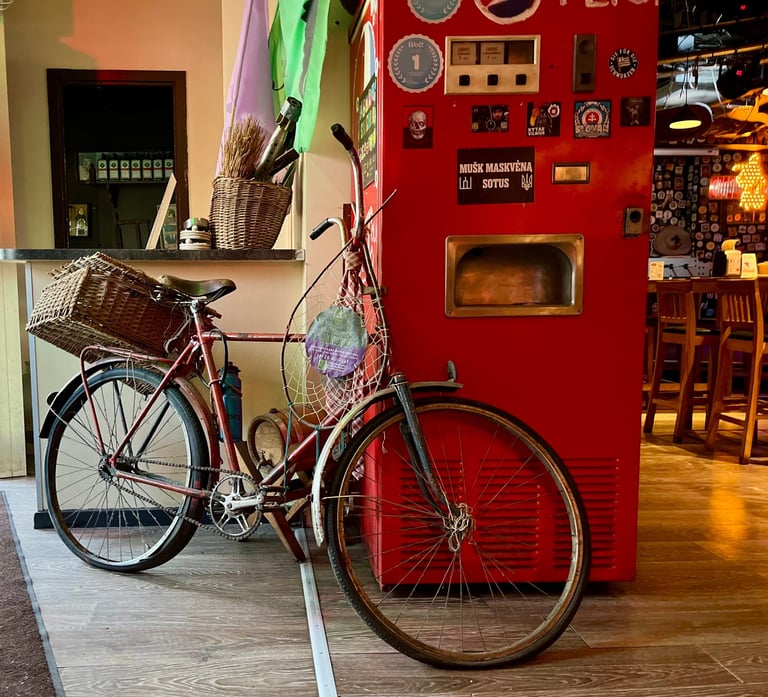

"And on the first day, we traded... twenty euros. I started going to the newspaper offices, bicycling around the city and handing out flyers. Journalists started to take an interest, and in just two months Šnekutis was up and running. At that time rural brewers did not appear much at festivals and fairs." Valentas was probably the first and very popular one. And the first customers of Šnekutis were, of course, students! They spread the word all over Vilnius that it was a good place. Soon, other businessmen started to offer the beer after seeing his success.
"If taxes were lower, we could live better. There are those who take risks and who do black business. They live better. But not for long - just once. Then they close up for life, get kicked out, and it's hard to reopen," believes the founder of Šnekutis.
Nowadays, mouth to mouth advertising is no longer enough - you need to be on social media too. "Šnekutis strives to stay in the top five. Before the pandemic, the bar was like an active beehive every day - people came here no matter if it's Monday or Friday, from noon to dusk. Today, although the covid has struck, Šnekutis is alive again. The restaurant is buzzing with activity whenever you visit it. Especially on weekends. Many visitors come from abroad every day. In this way, Šnekutis has a responsible mission - to show tourists our deep and delicious traditions. And when you come here, you really feel at home..."
